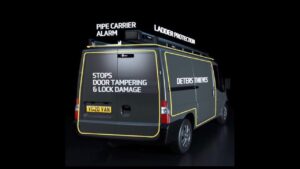
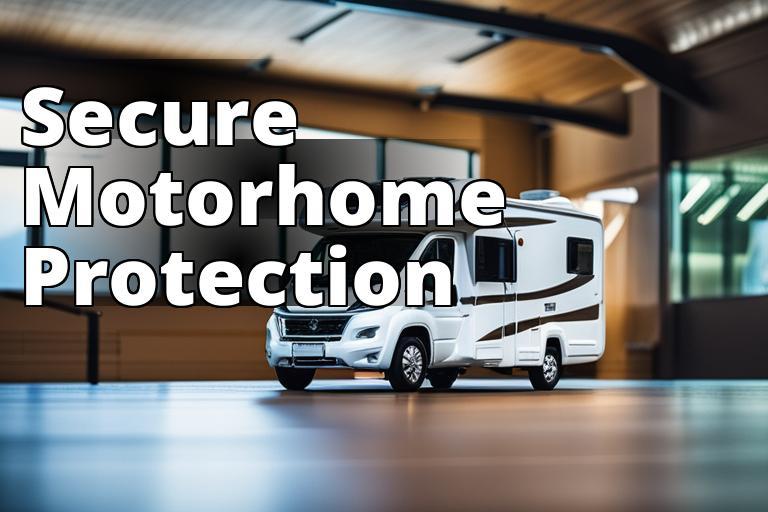
Are you looking to enhance the security of your motorhome? One of the most effective ways to achieve this is by installing a reliable alarm system. In this comprehensive guide, we will explore the different types of alarm systems available for motorhomes, key features to consider, how to assess your security needs, setting a budget, consulting with professionals, purchasing the alarm system, installation procedures, testing and familiarising yourself with the system, and regular maintenance and upgrades. By following these steps, you can maximize the security of your motorhome and enjoy peace of mind during your travels.
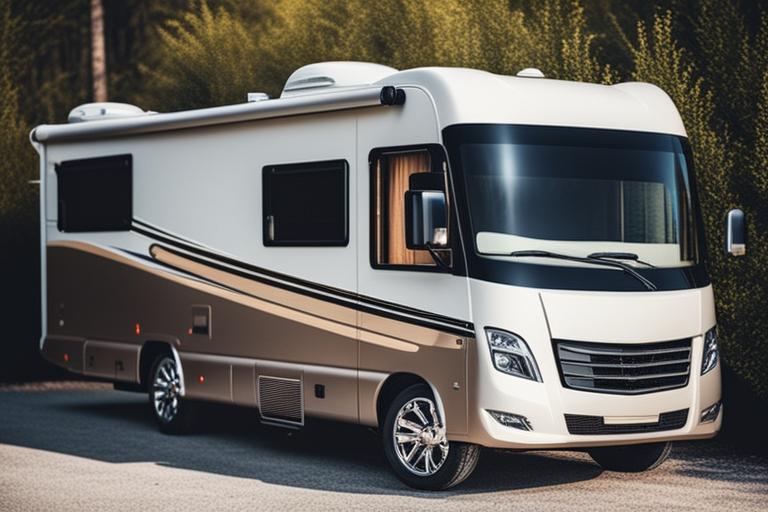
What You Will Learn About Motorhome Alarm Systems
You will learn about different types of alarm systems, key features to consider, evaluating effectiveness and reliability, assessing security needs, setting a budget, consulting with professionals, purchasing and installing the alarm system, testing and familiarizing yourself with the system, and regular maintenance and upgrades.
– Different types of alarm systems and their key features
– Factors to consider in choosing and installing an alarm system for your motorhome
– The importance of regular maintenance and upgrades for ongoing security
One summer, Sarah and her husband took their motorhome on a road trip through Europe. They parked at a remote campsite for the night, only to be woken up by the sound of their motorhome’s alarm system blaring. Startled, they quickly realised that someone was attempting to break into their vehicle. The motion sensors and sirens had effectively detected the intruder, scaring them off before any damage could be done.
This experience highlighted the importance of having a reliable alarm system for their motorhome. It not only protected their belongings but also provided them with peace of mind, allowing them to enjoy a peaceful night’s sleep without worrying about potential security threats.
This story demonstrates how a well-chosen and properly installed alarm system can make a real difference in protecting your motorhome and ensuring a safe and secure travel experience.
Before diving into the process of choosing and installing an alarm system for your motorhome, it’s important to understand the different types of alarm systems available in the market.
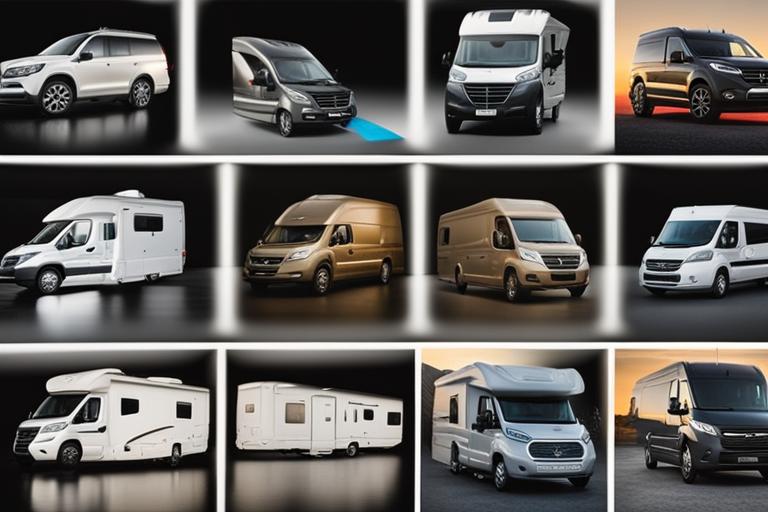
When choosing an alarm system for your motorhome, consider the following key features:
To ensure the effectiveness and reliability of an alarm system, it’s important to conduct thorough research and evaluations before making a purchase.
By carefully considering the types of alarm systems available, key features to look for, and evaluating their effectiveness and reliability, you can make an informed decision when selecting an alarm system for your motorhome.
Before purchasing and installing an alarm system, it’s important to assess your motorhome’s security needs. This involves evaluating the vulnerabilities of your motorhome and considering additional security measures that may be necessary.
Take into account your travel habits and personal peace of mind when determining the required security level for your motorhome. If you frequently travel to high-risk areas or if you have valuable possessions inside your motorhome, you may need a more comprehensive alarm system with advanced features.
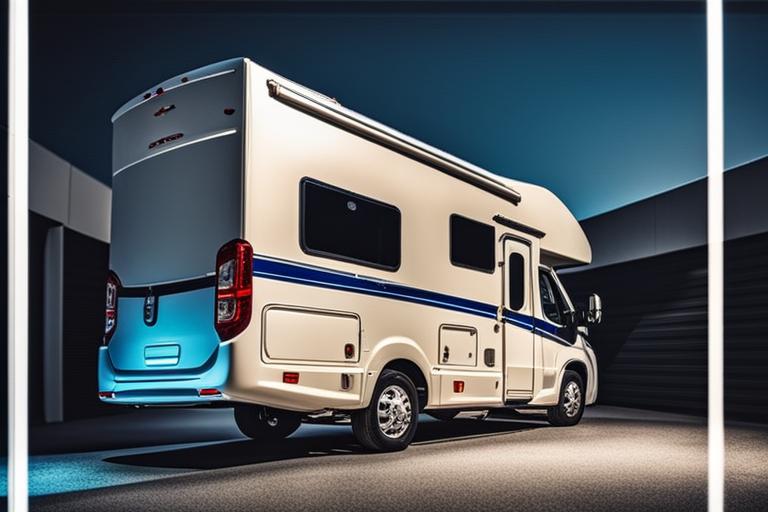
In addition to an alarm system, consider implementing the following security measures to further enhance the safety of your motorhome:
By assessing your motorhome’s security vulnerabilities, determining the required security level, and considering additional security measures, you can create a comprehensive security plan for your motorhome.
Setting a budget is an important step when considering an alarm system for your motorhome. It’s essential to determine how much you are willing to invest in the security of your motorhome and consider the long-term costs associated with the alarm system.
Consider your financial capabilities and allocate a budget for the purchase and installation of an alarm system. Take into account the features and functionalities you require and set a realistic budget accordingly.
When setting a budget, it’s important to consider the long-term costs associated with the alarm system. These may include monitoring fees, maintenance expenses, and potential upgrades or replacements in the future. Be mindful of these costs to ensure that your chosen alarm system remains effective and functional over time.
Seeking advice from motorhome security specialists or professionals can provide valuable insights and guidance when choosing an alarm system. Consulting with professionals allows you to discuss your specific needs and budget, leading to suitable recommendations for your motorhome.
Research and reach out to motorhome security specialists who have extensive knowledge and experience in the field. They can offer expert advice tailored to your motorhome’s security requirements.
During consultations with professionals, clearly communicate your needs and budget. This will help them provide suitable recommendations that align with your requirements and financial capabilities.
When discussing alarm system options with professionals, inquire about warranties and after-sales support. A reliable warranty and good after-sales support can ensure that you receive assistance and repairs if any issues arise with your alarm system.
By consulting with professionals, you can gain valuable insights, receive expert recommendations, and make an informed decision when selecting an alarm system for your motorhome.
Once you have assessed your security needs, set a budget, and consulted with professionals, it’s time to purchase the alarm system for your motorhome. Consider the following factors when making your purchase:
Ensure that you purchase your alarm system from a reputable supplier or manufacturer. Look for well-established companies with a track record of providing high-quality security products.
Consider if there are any additional accessories or components that can enhance the security features of your motorhome alarm system. For example, you may want to purchase extra sensors or a backup power supply to ensure uninterrupted operation.
Compare prices from different suppliers or manufacturers to get an idea of the market range for alarm systems. Look for deals or discounts that may be available, but prioritise the quality and reliability of the system over price alone.
By carefully selecting a reputable supplier, considering additional accessories, and comparing prices, you can purchase an alarm system that meets your motorhome’s security needs.
Installing an alarm system for your motorhome can be done either as a DIY project or by hiring a professional installer. The installation process involves several key steps.
If you choose to install the alarm system yourself, carefully follow the manufacturer’s instructions provided with the system. These instructions will guide you through the installation process and ensure that it is done correctly.
If you are not confident in your DIY skills or if the alarm system requires complex installation, consider hiring a professional installer. They have the expertise and experience to ensure that the system is installed correctly and functions optimally.
During installation, ensure that door and window sensors are properly aligned. This will ensure accurate detection and minimise false alarms.
If the alarm system requires a connection to the motorhome’s electrical system, ensure that it is securely connected. Faulty connections can lead to system malfunctions or ineffective operation.
After installation, thoroughly test the alarm system to ensure that all components are functioning properly. Test each sensor, the control panel, and the alarm or siren to verify that they are working as intended.
By following the proper installation procedures, you can ensure that your motorhome alarm system is correctly installed and ready to provide the security you need.
Once the alarm system is installed, it’s important to test and familiarise yourself with its operation. This will ensure that you are prepared to effectively use the system when needed.
Test each component of the alarm system to ensure that it is functioning properly. Trigger the sensors, activate the alarm, and test the remote control capabilities to verify that everything works as intended.
Take the time to read the user manual and understand how the alarm system operates. Familiarise yourself with the various features and settings so that you can make the most of your motorhome’s security system.
Practice arming and disarming the alarm system to ensure that you are comfortable with the process. Adjust settings such as sensitivity levels or notification preferences as needed.
Learn to recognise the different alarm signals and their meanings. This will help you respond appropriately to different situations and take the necessary actions to protect your motorhome.
By testing and familiarising yourself with the alarm system, you can confidently operate it and maximise its effectiveness in securing your motorhome.
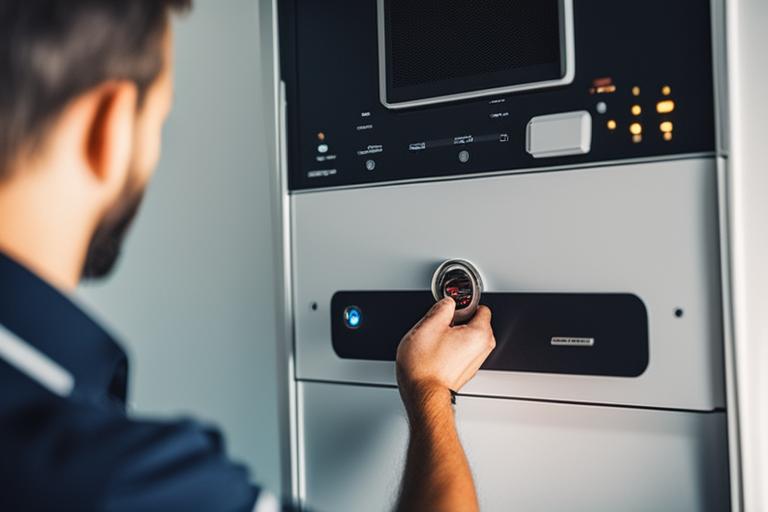
To ensure the ongoing security of your motorhome, regular maintenance and upgrades are necessary. Follow these steps to keep your alarm system in optimal condition:
Schedule regular maintenance checks for your alarm system. This can include inspections by professionals, cleaning and testing of sensors, and overall system health assessments.
Regularly clean and inspect sensors to ensure that they are free from dust, debris, or damage. Dirty or damaged sensors may affect the performance of the alarm system.
Monitor the battery life of your alarm system components and replace batteries when necessary. Dead batteries can compromise the functionality of the system.
If your alarm system has firmware or software updates available, ensure that you update it regularly. Firmware updates often include bug fixes and security enhancements that improve the overall performance of the system.
Stay informed about the latest advancements in motorhome security technology. This will help you identify new features or systems that can further enhance the security of your motorhome.
As your motorhome’s security needs evolve, consider upgrading your alarm system to match those requirements. This may involve replacing certain components or upgrading to a more advanced system.
By regularly maintaining your alarm system and considering necessary upgrades, you can ensure that your motorhome remains well-protected against potential threats.
In addition to the comprehensive information provided, including real-life examples or case studies from motorhome owners who have installed alarm systems can further enhance the first-hand experience aspect and provide practical insights for readers.

Michael Horsfall, a seasoned plumbing and heating engineer with over 35 years of trade experience, is the innovative mind behind VanGuardian, a proactive van security solution. His journey into the realm of security was triggered by recurrent incidents of theft, particularly copper pipe theft right from outside his residence in Leeds. The rampant van crimes led him to envision VanGuardian, a patented alarm system engineered to deter theft by activating upon contact, safeguarding assets before any damage occurs. Michael's in-depth understanding of the challenges faced by tradesmen, paired with his endeavor on Dragons' Den to secure investment, underscores his commitment to fostering van safety. His profound expertise and real-world experience equip him with a distinctive insight, making his blogs an invaluable resource for individuals seeking pragmatic advice on van safety and security.

Copyright © 2021 VANGUARDIAN
VANGUARDIAN is a registered trademark of PROTEK-ONE, company no. 11802780.
